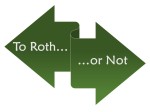This post is adapted from a Plan Well, Retire Well blog post first written in 2014 for University of Illinois Extension. Used with permission.
Odds are, someone in your family has a high deductible health plan (HDHP) and is eligible to have a health savings account, aka HSA. HDHPs have lower monthly premiums than regular health insurance plans. They have become more common as employers look for ways to reduce the cost of health insurance for the company and its employees. However, the trend has been just the opposite for policies offered on the Affordable Care Act’s Marketplace. Years ago, many of the bronze level plans were HDHPs, but today you will find few policies that qualify.
The big advantage of a high deductible plan is the lower premium. The trade-off is, you have to be prepared to pay those larger deductibles if or when you need medical care. Health Savings Accounts (HSAs) were created to help you save for those deductibles and other out-of-pocket health care expenses. Some employers will contribute toward your HSA on your behalf, giving you an additional incentive to chose the HDHP.
Tax-Free
The tax benefits of HSAs are unbeatable. Contributions to HSAs are not taxed, growth in the account is not taxed, and distributions aren’t taxed as long as they’re used to pay for qualified medical expenses. It’s like having a tax deductible, traditional IRA that give you the tax-free distributions of a Roth, all rolled into one.
You’ll even avoid FICA (Social Security) and Medicare taxes on contributions that are deducted from your paycheck. Exception: if your income is over the Social Security earnings limit – $168,600 for 2024 – by at least the amount of your HSA contribution, you will see no reduction in your total FICA tax.
If you make a direct contribution to an HSA (not through your paycheck), you still get to deduct that money from your taxable income. Claim it as an adjustment to income on Schedule 1 of your 1040. You don’t have to itemize to get the tax benefit.
These tax benefits are available to anyone with a HDHP and an HSA; there are no income limits or other restrictions.
You choose when to use the money
Unlike a flexible spending account for health care expenses, you don’t have to empty your HSA every year. Instead, if you have the financial where-with-all to pay your deductible and out-of-pocket health care expenses with other money, you can invest the money in your HSA and let the money grow tax-free. At some point in the future, you can request to be reimbursed for those expenses. The withdrawals will be tax-free. I’ll cover the specific rules for distributions from HSAs in a future blog post.
You can even contribute to someone else’s HSA.
The recipient deducts the contribution as if they contributed the money themselves, and enjoys tax-free growth and distributions from your gift. It’s a great way to help out adult children who have a high deductible health plan.
What qualifies as a High Deductible Health Plan? How much can you contribute to your HSA?
Each year, the IRS announces the minimum deductible and the maximum out of pocket expenses that a health insurance policy must have to qualify as a High Deductible Health Plan. These numbers change each year with inflation. In addition to the deductible and out of pocket limits, an HDHP must provide preventive care with a lower (or no) deductible.
| 2024 | High Deductible Health Plan (HDHP) | |
|---|---|---|
| Annual deductible is at least | Annual out-of-pocket is no more than | |
| Individual policy | $1600 | $8050 |
| Family policy | $3200 | $16,100 |
How much you can contribute to your HSA depends on whether you have an individual or family policy, and your age. The limits change each year with inflation.
| 2024 | Health Savings Account | |
|---|---|---|
| Annual HSA Contribution limit | Additional contribution if age 55 or older | |
| Individual policy | $4150 | $1000 |
| Family policy | $8300 | $1000* |
| * Additional $1000 must be deposited into 55+ year old’s own HSA. For a married couple both 55 or older, each must have their own HSA in order to each contribute an additional $1000. | ||
In my next post, I’ll point out some of the Do’s and Don’ts for Health Savings Accounts.





Thank you, Karen Chan, for your insightful blog post. The information you’ve shared is incredibly helpful and well-articulated. I truly appreciate the depth of knowledge and clarity you’ve provided on the subject. Looking forward to reading more of your content in the future!